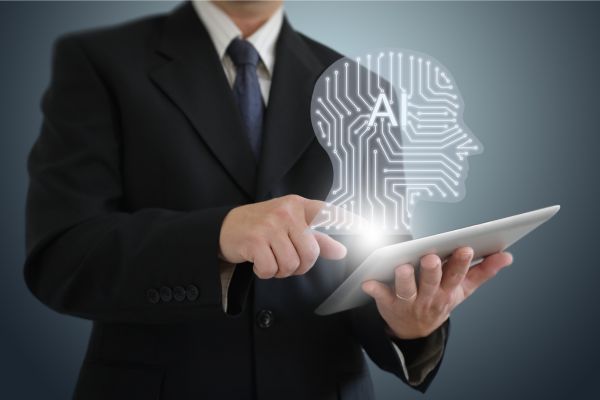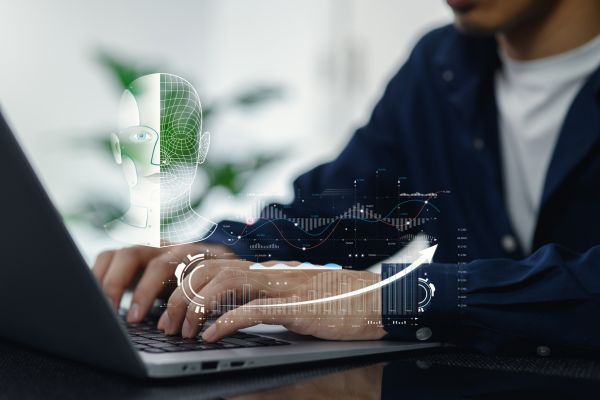The question isn't whether attorneys use AI; it's how and how well individuals use it. The rapid evolution of Artificial Intelligence is reshaping the operations of law firm practices across every legal practice area, from personal injury to complex corporate litigation. For legal professionals, understanding and adopting AI tools isn't just about efficiency—it's quickly becoming a baseline requirement for staying competitive and serving clients effectively.
The arrival of generative AI has moved the conversation beyond simple automation into decision-making and complex, creative legal work. This technology isn't just a trend; it's a fundamental change in the way legal services can be delivered. Ignoring it means falling behind.
But diving in without caution is just as dangerous. Navigating this new frontier requires careful consideration of the benefits and the significant risks involved. Before you integrate these tools into your practice, it's vital to grasp the full scope of what's possible and what's perilous.
Ready to explore how these generative AI tools are changing the daily grind of the Legal Profession? Keep reading.

Positive Impacts: How AI Enhances Legal Practice
The benefits of legal counsel responsibly integrating AI-powered tool platforms like OpenAI, ChatGPT, Gemini, etc., are substantial, offering unprecedented increases in speed, accuracy, and client service.
Revolutionizing Document Review and Analysis
One of the most immediate and profound shifts is in Document review. Traditionally, this was a massive, time-consuming, and expensive task, especially in large litigation documents. AI models now allow litigation teams, including paralegals, to process vast amounts of data—including emails, complex agreements, and even thousands of pages of medical records—in a fraction of the time.
For example, in a personal injury case, AI tools can rapidly create medical records indices and highlight key passages relating to causation and damages. Similarly, for transactional attorneys, a contract review committee can leverage AI for contract analysis to quickly spot problematic clauses or missing terms across hundreds of agreements, making contract drafting significantly faster and more accurate.
This predictive capability, sometimes called predictive AI, helps estimate litigation outcomes or risks in a contract, improving strategic planning.
Did you know? Marks Law Group is the experienced car accident legal team to help in the Altanta, Georgia area.
Turbocharging Legal Research and Case Management
Generative AI technology excels at synthesizing information, learning as it goes. Legal professionals can now use these tools to query massive legal databases quickly, identifying relevant case law, statutes, and regulations that might have taken days or weeks manually. Modern AI tools can also produce hyperlinked documents, making cross-referencing between a brief and its supporting Legal citations seamless.
Furthermore, advanced case management software integrates AI to automate tasks like initial client intake, scheduling, and even sophisticated billable hour tracking, which streamlines operations and frees up attorneys to focus on high-value strategic work rather than administrative minutiae, thereby maximizing the value of billable hours.

Streamlining Court Filing and Compliance
Automating routine administrative tasks ensures compliance and saves time. Systems leveraging AI can verify required formatting before a court filing is submitted, check that a brief includes properly generated tables of authorities, and even ensure all cited documents are current and valid. This dramatically reduces the risk of rejection by the court due to technical errors, a common pitfall in high-pressure litigation.
Negative Examples: The Perils of Careless AI Use
While the positive potential is clear, the negative consequences of careless or a lack of ethical considerations when using AI tools are already surfacing, leading to public reprimands and damage to reputation.
Related: Marks Law Group offers free consultations!
The Problem of Hallucinations and Citation Mistakes
The most public and damaging pitfall has been the phenomenon of false AI output called "hallucinations," where generative artificial intelligence creates plausible-sounding but entirely fabricated information, including non-existent case law.
A prominent example involved an attorney who submitted a brief to a Federal judge containing content with several entirely fake cases generated by AI. This highlights a critical failure to uphold the ethical duties of verification and competence.
Relying solely on generative AI for research without meticulous verification is professional malpractice waiting to happen. Legal citations must always be double-checked against reliable, human-vetted legal databases.

Data Security and Confidential Information Risks
Attorneys must uphold the highest standards for protecting confidential information. Feeding sensitive client data—such as detailed facts in a personal injury claim or proprietary information in a business deal—into third-party AI models or unsecured AI tools poses immense risks.
If the AI vendors are not vetted for robust data encryption and privacy policies, the attorney could inadvertently breach client confidentiality and violate their rules of professional conduct. The American Bar Association and various State Bar associations are rapidly issuing guidance on this exact issue.
Check it out! Unsure if you still have a case? Check the Georgia statute of limitations.
Ethical Duties and Professional Competence
The integration of AI doesn't diminish an attorney's ethical duties; in fact, it adds new layers of responsibility. The duties of competence require an attorney to understand the risks and limitations of the technology they employ.
Using AI tools to draft legal documents or synthesize legal arguments without the necessary human oversight and experience is a dereliction of this duty. This includes using AI for education. While AI can handle the mechanics, the strategic judgment, client counseling, and final legal reasoning must remain with the human lawyer.
Regulatory bodies are beginning to incorporate AI knowledge into professional requirements, much like the general knowledge tested by the Uniform Bar Exam and the Multistate Professional Responsibility Exam ensures a baseline level of legal knowledge and ethical understanding.

Navigating the Future: Responsible AI Use
The path forward requires a framework of responsible AI. It means implementing firm-wide policies for generative AI use, focusing on training, development, and ensuring a human is always in the verification loop. Every law firm must develop a clear internal AI bill of rights or adoption usage guidelines to ensure client trust.
We must treat AI not as a replacement for legal thinking but as a sophisticated support system. The focus must be on maximizing its benefits—like efficiency in document review and contract analysis—while mitigating the risks of false information and data breaches. Strong enforcement mechanisms within firms are essential to ensure compliance with these new ethical boundaries.
The future of the Legal Profession will be defined by those who master this collaboration between human judgment and artificial intelligence.
Give Marks Law Group a call today at (678) 251-9309 for any personal injury inquiries in the state of Georgia.
